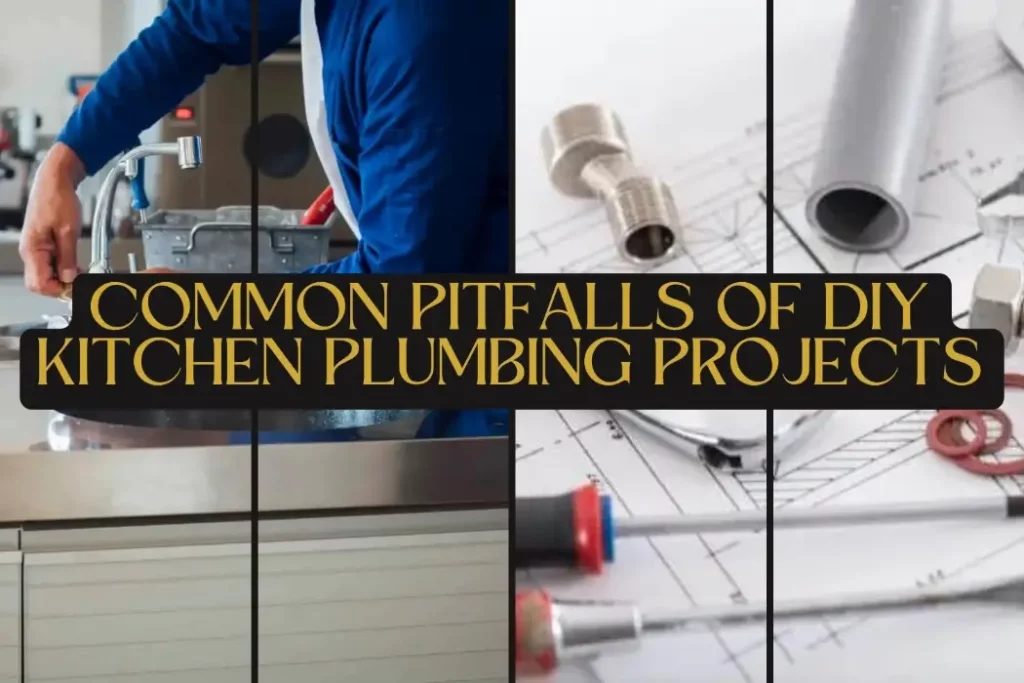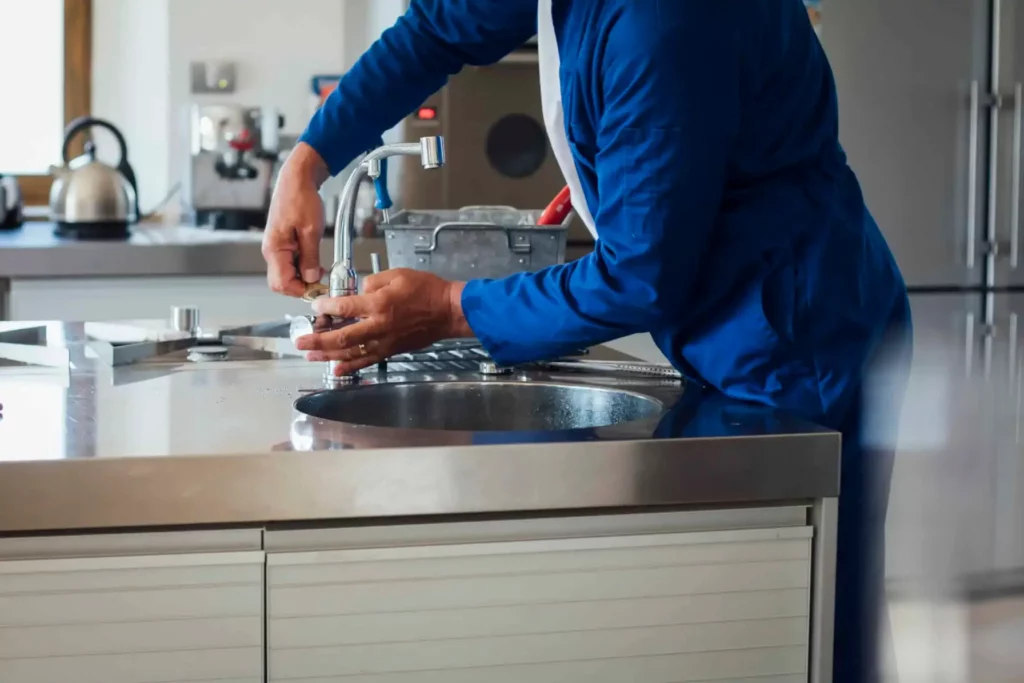
These days, it feels like we are all being encouraged to take on DIY (do-it-yourself) projects for pretty much everything in the home – even more than before. Of course, this makes sense to an extent. Why pay for services that we ultimately don’t need, right? Unfortunately, this methodology is not always sound.
This is especially true when it comes to trying DIY with plumbing. Part of this is due to the very nature of DIY projects, really. Allow us to explain.
DIY projects, or Do-It-Yourself projects, are activities or tasks undertaken by individuals to create, modify, or repair things on their own, without seeking professional assistance. These projects can range from simple crafts and home decorations to more complex tasks like building furniture, renovating rooms, or even constructing entire structures. DIY projects allow people to express their creativity, save money, learn new skills, and customize their living spaces or possessions according to their own preferences and needs – however, there is an inherent risk every time we take one on.
You can learn more about this concept on this page if you’re still wondering. For now, though, we will be focusing on what some of the common pitfalls of trying to take on these projects in the kitchen can entail. Remember – sometimes, it really is going to be better to bring in a professional.
Logistics
One of the things that tends to trip folks up when they try to do DIY projects in their kitchens is the planning phase. Jumping into a kitchen project without proper planning can lead to unexpected issues and delays. It is important to take the time to research, create a detailed plan, and gather all the necessary materials beforehand.
Unfortunately, even this is not going to “save” you in some circumstances. Often, there are things that crop up that are simply unpredictable. In these cases, the situation can quickly spiral into something that puts us in way over our heads.
Underestimating Budget
Projects in the kitchen tend to be expensive, regardless of whether they are something you plan to do on your own or with the help of a professional. In fact, kitchen renovations can become costly quickly. Failing to accurately estimate the costs of materials, tools, and potential unforeseen expenses can lead to budget overruns. It is crucial to set a realistic budget and account for all potential expenses.
Now, when you work with a professional plumber, they can do some of that work for you. For instance, Harry Hayes Plumbing here in Florida is able to provide estimates of costs well ahead of time. Just remember that sometimes there could be unexpected circumstances that cause the initial quote to change – it does not hurt to overestimate what you will be spending.
Lack of Experience
At the end of the day, plumbing jobs require a certain level of expertise. If you lack experience or knowledge about specific tasks involved in a kitchen project, such as plumbing, electrical work, or cabinetry installation, it is essential to be cautious.
In fact, taking on tasks beyond your expertise can result in subpar workmanship or even potential safety hazards. Consider seeking professional help or investing time in learning relevant skills before proceeding. Obviously, if you are aiming to have a project done quickly, the former will probably be more efficient than the latter.
Not Paying Attention to Building Codes
Now, for those of us who are not contractors, plumbers, electricians, or other similar professionals, it can be pretty easy to overlook the fact that there are codes and regulations as far as how we construct our houses. These change fairly often as well, meaning that we pretty much constantly have to keep an eye on them. Unfortunately, this is easier said than done for many of us out there.
Not adhering to local building codes and regulations can lead to legal and safety issues. Ensure that your DIY project complies with all applicable rules and obtain any necessary permits before proceeding – and if you are ever in doubt, it may be wiser to just hold off and hire a professional. After all, this is one of those cases where “better safe than sorry” really comes into play.
Improper Measuring
Precise measurements are crucial when working on a kitchen project. Failing to measure accurately or not taking into account elements like plumbing, electricity, or appliance dimensions can result in ill-fitting cabinets, countertops, or appliances. This can be especially bad when it comes to plumbing, considering how precise those measurements really need to be.
Expectations and Timetables
DIY kitchen projects often take longer than anticipated. Setting unrealistic expectations or not factoring in sufficient time for research, planning, and execution can lead to frustration and incomplete work. Again, that is why bringing in a professional plumber tends to be the way to go.
Still, if you are planning to do a project on your own, be sure to manage your expectations. Allot yourself plenty of time, and do not get too frustrated if the timetable does not work out. There are a lot of moving parts to consider when you decide to take on a kitchen plumbing project by yourself.
Functionality Versus Aesthetics
While it is important to have an aesthetically pleasing kitchen, it is equally essential to prioritize functionality and practicality. Do not overlook aspects like ergonomics, storage space, and workflow efficiency in favor of visual appeal alone. Admittedly, it can be easy to get swept up in details like how everything looks, so be sure to keep that in mind if you do decide to take on a project like this on your own.
Why Hire a Professional?

As you may have guessed, in a lot of circumstances, it is usually best for folks to bring in a professional plumber. After all, professional plumbers have the necessary expertise and knowledge to handle a wide range of plumbing problems.
They undergo extensive training and possess the skills needed to diagnose issues accurately and implement effective solutions. Their experience enables them to manage complex plumbing systems and identify underlying problems that may not be apparent to an untrained eye.